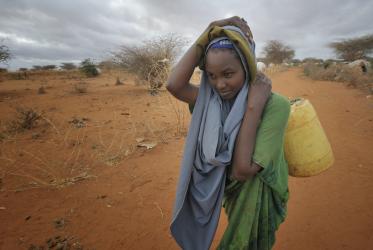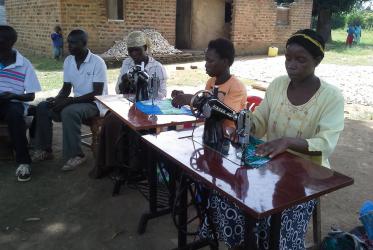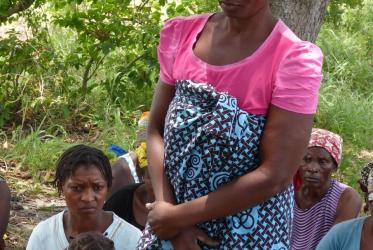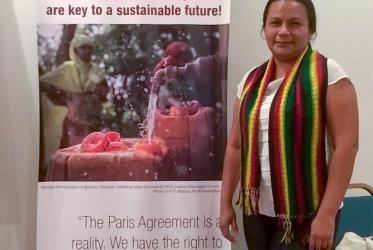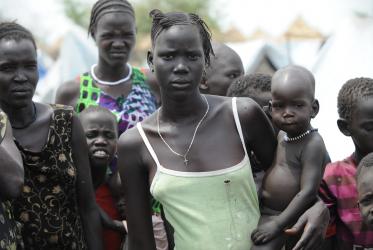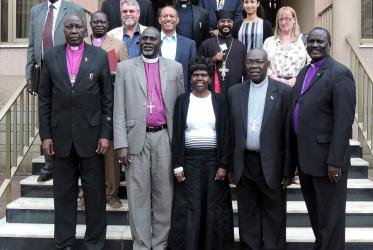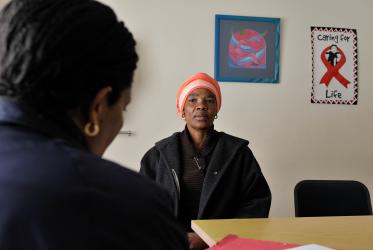Displaying 141 - 160 of 175
Food and land justice focus of Mozambique workshop
19 December 2016
Water justice focus of consultation in Nigeria
29 November 2016
South Sudan: role of civil society vital in seeking peace
04 October 2016
South Sudan Council of Churches issues message to UN delegation
07 September 2016
New guide on climate justice and water released
01 September 2016
Children are being let down over HIV care
17 July 2016
Local work by faith-based groups key to ending AIDS
27 June 2016
